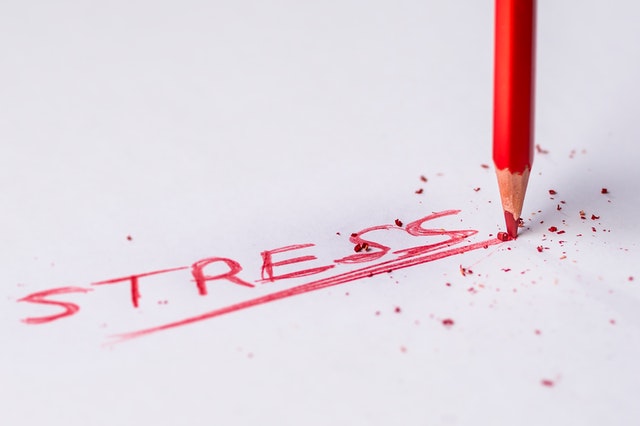
Is it burnout or depression?
Burnout versus depression
We are seeing lockdown restrictions being eased across the world, yet depression numbers keep climbing rapidly. Some people have been working on the front lines in healthcare and grocery stores. Others have been forced to work from home or have even lost their jobs.
Over the past few months, their relationship with work has dramatically changed for many people.
Healthcare workers, for example, are widely known for being overworked. The pandemic put a whole new spin on this existing problem. For many front-line workers, there were no breaks, few days off, long hours, and stressful working conditions. We are seeing a lot of people heading for or already experiencing burnout because of this.
On the other hand, there are many people who lost their jobs or their businesses. Some have been lucky enough to get government support or unemployment insurance. Others have not been so fortunate. Over the past months, they have been caught in a downward spiral. A rapidly increasing amount of people is exhibiting symptoms of depression and anxiety.
“The land of burnout is not a place I ever want to go back to.”
- Arianna Huffington
So how do you know if you are experiencing burnout, depression, or both? Do those two terms mean the same thing? It can be quite confusing because people can have many of the same symptoms. You can struggle with both burnout and depression. And prolonged burnout can even facilitate depression. Let’s talk about what the differences and similarities are.

Burnout
When I said burnout, many of you probably thought of work. And that’s pretty much exactly how burnout starts. The term was coined in the 1980s and referred to an exhaustion brought on by one’s work environment. If you are heading for a burnout it is usually work circumstances that cause you a lot of stress over some time. With no change in those circumstances, you are likely to experience burnout.

More recently, burnout has been expanded to include situations other than work. For example, caring for a sick family member could cause burnout. Or raising a child, depending on how you experience the situation. Burnout can be brought on by situations that cause you a lot of stress and you have no choice but to continue. You are not able to change the situation and find relief.
This could be because your family member is ill and needs care. And you have no other family to help you care for them or you cannot afford a care aid. The same goes for raising a child. Maybe you are a single parent with no family nearby. Or you could be working several jobs while raising your child. You know the situation cannot be changed, but it causes you stress nonetheless.
Depending on who you speak to, they may consider burnout and depression one thing or two different things. The reason for this is that the symptoms can overlap so much that it is hard to tell where one ends and the other begins. We’ll get into this a little more later on as well. There are some symptoms that are more connected with burnout.

Burnout symptoms
Physical and mental exhaustion generally brought on by your work
Burnout means you are burnt out. You have literally used up your body’s energy, both mentally and physically. This means that you are generally exhausted. You will go to work feeling tired. And you will come home feeling tired. You might also have sleep and/or anxiety issues because of the stress you are experiencing.
Along with exhaustion, you might feel a host of challenging emotions. This can include hopelessness, a sense of failure, guilt, frustration and anger. To cope with the situation, you may decide to self-medicate with alcohol or drugs and isolate yourself even further.
Due to the physical exhaustion, you can also experience physical symptoms. You may have headaches or muscle pains all over your body. You might also find that you are sick a lot. Overall you might feel out of sorts or like something is just off with your body.

Depersonalization or alienation from your work activities and coworkers
A lot of people with burnout syndrome start feeling very negative toward their work. This can include not wanting to go to work and avoiding your coworkers. You might also feel nothing when you go to work - numb and empty. You just do your work for the sake of getting paid. But the excitement or spark is gone. You are like a shell that is dead inside.
Reduced productivity
Of course if you are tired and frustrated all the time, it only makes sense that your productivity will suffer. You might simply be too exhausted to meet deadlines. You might also feel like you just cannot muster any effort to be creative. And you might miss deadlines or forget about tasks simply because your memory is suffering.

Burnout treatment options
How is burnout treated? The first step is to recognize that something is not working for you. This is different than being stressed once in a while or having a bad day. Only when you are aware of the problem can you move forward. The next step is to actually ask for help. And this could be from your family, your friends, or a healthcare professional.
If burnout is diagnosed (as opposed to depression), there tends to be a common consensus that medication is not the way to go. But to be clear, it is likely that if you do nothing about your burnout, it can facilitate depression. The prolonged exposure to adverse working conditions and overwhelming stress can turn into depression and anxiety.
Burnout and a solid self-care routine
It is important to self-care during your burnout. You need to recharge your batteries, so to speak. Make sure you follow a clean diet and get plenty of rest. Hydrate properly and exercise a little bit, if you can. Even if you just go for short walks. And do things that make you happy. Listen to music, take a bath, meditate, do some yoga, paint, or play with your children or pets. Anything that makes you feel good.

Set boundaries to prevent burnout
Saying yes too often is sometimes the cause of burnout as well. You might take on too much at work because you feel pressured to perform. You might already be busy and agree to help your neighbor move house just because you feel it’s the right thing to do. Finding the balance of when to say no for your own sanity will take a bit of practice. But it’s important to respect your own physical and mental boundaries so you can be happy and healthy.
Therapy to help with burnout
You might not think of therapy as your first option. But, therapy can be helpful in certain burnout situations. Depending on what is causing your stress, you might benefit from sharing your experience. You may also benefit from learning to set personal boundaries and how to communicate effectively what you need. Therapy can be a great tool in many situations and help with building resilience to burnout going forward.
Take a leave of absence to counteract burnout
It might also help to remove yourself from the situation, if you are able to. If you are being treated by a physician, they may be able to help you with a leave of absence from work. But, be aware that burnout is only considered a reason for sick leave in certain countries. Of course, you need to weigh the possible financial impact and make a decision that works for you. If you are exhausted from caring for a family member, there may be resources available to assist you. And if you are burnt out from raising your child, you may need to speak with support groups about how to get help for your family.

Depression
For those of you who have suffered from depression, the burnout symptoms might seem very familiar. And that’s because there can be a huge overlap in symptoms between burnout and depression. So much, in fact, that burnout is often diagnosed as depression. Some professions consider burnout and depression the same condition and make no distinction between the two. Personally, I do believe there is one major difference, which I will discuss below.

We obviously talk about depression a lot on this blog. Some of you might already know a lot about depression and may have experienced it firsthand. Others might be here because you are looking to find out more about depression. Specifically when we compare burnout and depression, depression is listed in the ICD-11 as a “mental disorder”.
In contrast, burnout is considered an “occupational phenomenon”.
The International Classification of Diseases (ICD-11) is the international standard for defining and reporting diseases and health conditions. It is used in most parts of the world by doctors when they diagnose depression. The primary exception is the US, where the DSM-5 is used instead. But, the diagnostic criteria for depression are pretty much identical in both the ICD-11 and the DSM-5.
So, you can see that there is a difference in how the two conditions are approached. This also explains why the first line of treatment for burnout is not medication. You may also understand now why there can be a huge difference between being diagnosed with depression versus burnout. With depression, you can receive mental health treatment and disability pay in many cases. As mentioned above, burnout is not (yet) considered a reason for sick leave in many countries.

Depression symptoms
How is depression diagnosed and what symptoms do you have to experience? According to the ICD-11, you must experience at least 5 of their 10 symptoms for “most of the day, nearly every day, for at least 2 weeks”. One of the 5 symptoms has to be a depressed mood or a markedly diminished interest or pleasure in activities.
Here is a list of all 10 symptoms:
Another important point to note is that clinical depression excludes situations that arise because of another health condition, the effects of a substance or medication, and bereavement.

Overall, you can probably understand why burnout and depression could sometimes be considered the same. Most of these symptoms could describe either a depressed person or a person experiencing burnout. And it is easy to understand that prolonged burnout can turn into depression. Many of the symptoms might simply increase and blur into each other.

Depression treatment options
Medication
From my personal experience I found that medication was the first line of treatment. Once I was diagnosed with depression, I was offered antidepressants right away. It is definitely not for me to judge what decision you make about medication. In some cases, medication unquestionably has its place. For me, medication was almost as horrible as the depression itself. Which is why I tried a few different kinds and then decided to find a different solution.
Therapy
Counselling and other forms of therapy can be very helpful for many cases of depression. I still take advantage of therapy whenever I feel the need. Different people may respond better to different kinds of therapy, so take your time and find something that works specifically for you. In my personal experience, therapy has been hugely successful in breaking through my depression. But, everyone is unique.
Self-care
Just like with burnout, it is essential to self-care during depression. This is often easier said than done. You might start with medication and/or therapy. Once you can function, you can put in place self-care routines to build resilience and facilitate a breakthrough. Or, you may be able to start with tiny steps and build up to a self-care routine on your own.

Alternative therapies
Personally, this has been a game-changer for me. I have tried everything from meditation, to yoga, tapping, NLP, naturopathy, homeopathy, hypnotherapy, Tai chi, life coaching, and more. I found my personal breakthrough in the sum of all the alternative therapies I tried. If you are open to exploring something different, you may find one or several therapies that work well for you.

The major difference between burnout and depression
So, in closing there is one final, important thing I want to tell you about burnout and depression. It centers around the hormone cortisol. Cortisol is also known as the “fight-or-flight” hormone or the “stress” hormone. It is secreted by the body during times of stress and affects a number of systems in your body.
Cortisol can influence your metabolism, blood pressure, immune system, and memory, just to name a few. It basically helps you respond to stress. Cortisol is where depression and burnout connect on a hormonal level. And this is where we can measure a significant difference between the two.

The Center for Studies on Human Stress has made an interesting discovery about cortisol. They have found that people with burnout actually do not produce enough cortisol. The body seems to have gone on strike and is not producing enough cortisol. In contrast, people with depression generally over-produce cortisol.
This is a significant discovery and has the potential of utilizing cortisol as a biomarker for early detection. For example, saliva tests with low cortisol could indicate that a person is at risk for burnout. And saliva tests with high cortisol could indicate a person being at risk for developing depression. This could provide the opportunity to start preventative measures early on and maybe significantly lower the occurrence of both burnout and depression.

The Takeaway
Science is continually evolving and so are clinical definitions of diseases and phenomena. There might be some confusion over defining burnout and depression. And although there are charts of symptoms and possible hormone tests, the most important thing is that the people experiencing either one or both get the help they need.
Whether you suffer from burnout or depression, it can have a significant impact on your life.
Getting support and finding the help you need is paramount. Especially for burnout, you may have the chance to heal without it turning into clinical depression. If you wait and do nothing, you might be looking at a very lengthy and difficult road to recover from both burnout and depression. This will have a grave impact on your life and the lives of those around you.

So, when you notice something is off, speak up about it. Ask for help and look into treatment options available to you. Change your situation if you are able to and make a point to self-care. Depression will continue to spike over the coming years. It will be more and more important to stay healthy and find ways to support and care for your physical and mental health.
You are not alone and if we come together as a community, we can make a huge difference!
Sources
https://www.today.com/health/burnout-or-depression-how-tell-difference-t150836
https://www.15minutes4me.com/difference-depression/
https://pubmed.ncbi.nlm.nih.gov/30087493/
https://www.elcaminohealth.org/stay-healthy/blog/it-burnout-or-it-depression
https://humanstress.ca/stress-and-you/workers-and-stress/burnout-vs-depression/
